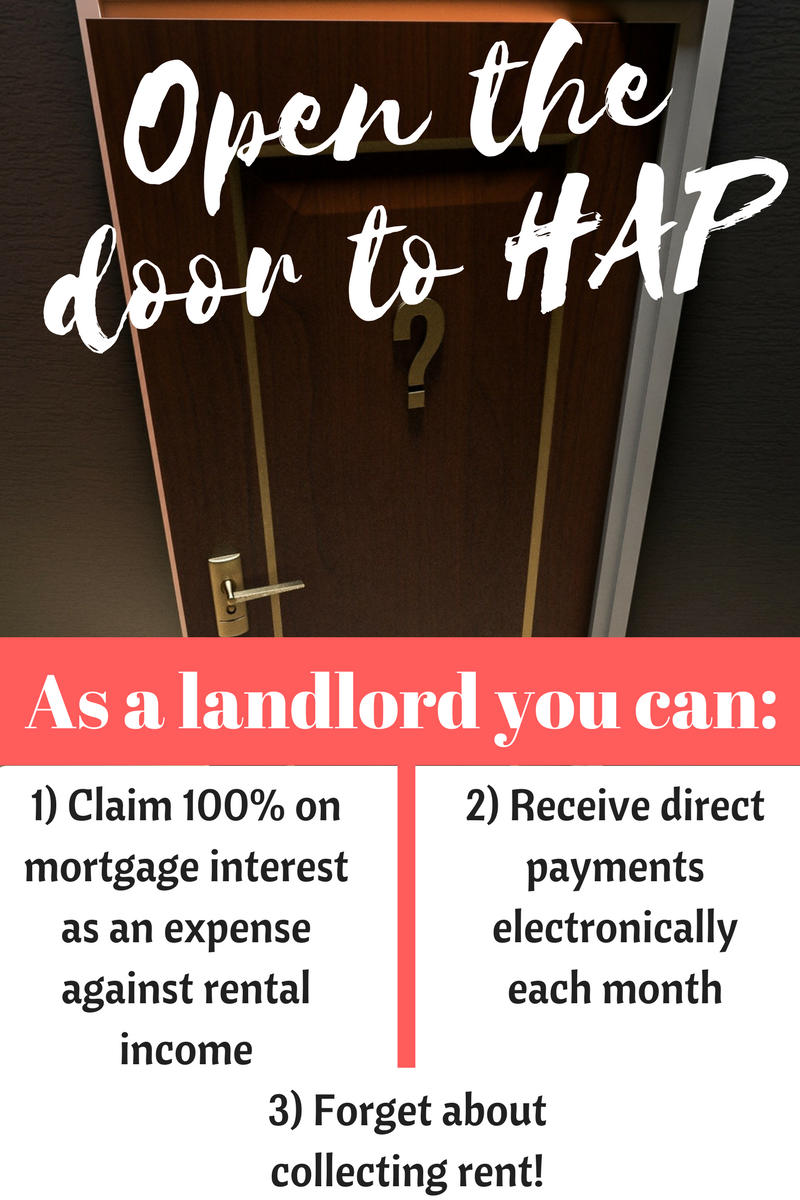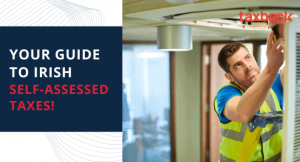The Housing Assistance Payment – a guide for landlords in Ireland
Everything you should know about the HAP
The Housing Assistance Payment (HAP) was rolled out gradually in 2014 and became nationally available from March of this year. Despite this, many landlords are still unsure of what it is or does.
If this sounds like you, fear not! We are here to help.
In short, the HAP scheme aims to allow all social housing supports to be accessed through one body - the local authority - and to enable people to take up full-time employment and keep their housing support. It has replaced Rent Supplement for those with a long-term housing need who qualify for social housing support.
To qualify for HAP, a tenant must be qualified for social housing support by their local authority and must also qualify to go on the local authority housing waiting list. HAP recipients are responsible for finding their own accommodation in the private rented sector and must make a contribution based on their income to their local authority.
I’m a landlord. What’s in it for me?

In truth there are many reasons why you should be interested in the HAP scheme.
1) Increased tax relief
For starters, landlords who rent to HAP tenants can avail of increased tax relief. As of 1 January 2017, you can deduct 80% on your mortgage interest, as an expense against rental income. This is an increase on the 75% that was applicable for deduction in previous years. And if you make your accommodation available to HAP tenants for at least three years, you can claim the remaining balance up to 100%.

So, for example, if you rent to a HAP tenant in 2016 (at 75% mortgage interest relief), 2017 (at 80%) and 2018 you then claim the remaining balance of the mortgage interest on your 2019 tax return in addition to the standard amount allowed on mortgage interest relief
Need a hand filing your rental income tax return? Talk with our team of experts today!
2) Peace of mind
Once you have agreed to rent a property to a HAP tenant, the local authority will begin to transfer payments to you. The payment is subject to terms and conditions (more on these below) and that the HAP tenant pays their rent contribution to the local authority.
You will have peace of mind regarding payments and won’t need to worry about chasing and collecting rents from tenants any longer. Instead, a direct electronic payment will arrive from your local authority on the last Wednesday of every month. Payments will also be consistent and do not change even if the tenant’s income does.
If you are a landlord, you could be due a tax refund
But what’s in the fine print?
To benefit from the HAP scheme you will first have to complete some administrative work.
Firstly, an application for HAP requires joint participation between you and your prospective tenant. As a landlord, you will need to send certain information to your local authority to support the application. This information includes your proof of entitlement to act as landlord of the property (by providing relevant documentation) and details of the total amount of monthly rent.
At HAP application stage, you will also be asked to certify that you are tax compliant. You will have up to five months (or before payments to you total €10,000) after the first HAP payment is made to produce a tax clearance certificate to your local authority.
The accommodation that you are renting must also meet certain standards. As part of a tenant’s application, you must self-certify that the property meets the required standards. Your local authority will then inspect the property within eight months of your first HAP payment to ensure compliance.

There has also been confusion for some landlords as to whether the scheme affects their relationship with the tenant. The answer to that question is no. In short, the ‘landlord and tenant’ relationship is between you and the HAP tenant. This means that the HAP tenant is your tenant and is not a tenant of the local authority. You will have no contract with your local authority and the tenant will pay the rental deposit to you. The tenancy is also governed by the terms of the Residential Tenancies Act 2004. This means that you have to register the tenancy with the Residential Tenancies Board (RTB). Landlords must also submit a Declaration of Undertaking Form with the RTB in order to avail of this initiative.
You should also be aware that a number of rent limits apply under the scheme. The Minister for Housing, Planning, Community and Local Government has set the limits based on the number of people in a household and the rental market in the locality. Further information on rent limits can be found here, or by contacting your local authority.
Lastly, should you or your tenant wish to end a residential tenancy, this must be done in compliance with the relevant legislation and this is not effected by HAP. And, if you feel that HAP is not for you, remember that you can’t discriminate on the grounds that a tenant is benefitting from the HAP scheme. Furthermore, when advertising the accommodation, you can’t state that HAP is not accepted.
For more information on HAP click here.




